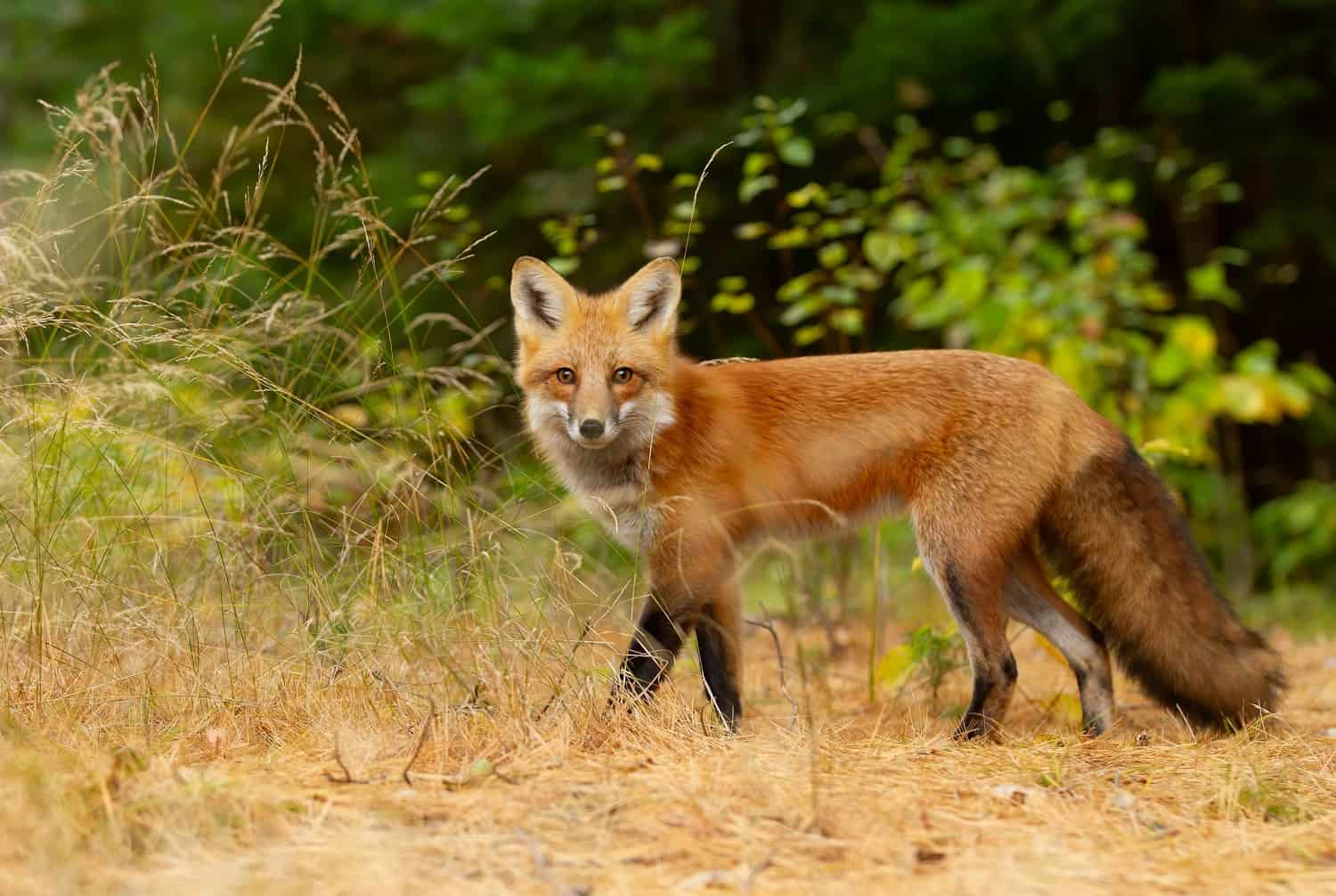More foxes in search of an ‘easy meal’ spotted in Mississauga
Published May 20, 2022 at 12:44 pm

A sharp increase in the number of fox sightings across the city has prompted yet another warning from Mississauga officials not to feed wild animals.
Despite repeated pleas to residents and a more aggressive public information campaign to deliver the message that the feeding of coyotes, foxes and other wildlife–whether intentional or not–is a bad idea, City of Mississauga officials say the message is not being heeded strongly enough.
“In Mississauga, people continue to feed or leave food outdoors for wildlife. This is a concern as feeding foxes and other wild animals can increase their presence and causes them to lose their fear of people,” City officials said in a news release today (May 20).
“The City’s Animal Services team has recently received a lot of reports of fox sightings. You may have seen one in a park, crossing a trail, running across a street or appearing in your backyard. Most of the time you can find them trying to find food. Foxes tend to be most active at dawn or dusk.”
The City urges residents not to feed foxes intentionally or to leave food or garbage out that could attract the animals.
“This will help reduce their presence in urban neighbourhoods,” officials say.
Those who are caught feeding wildlife in Mississauga can be fined $300 or more under the City’s Animal Care and Control Bylaw. This includes leaving food out, food waste and disposing of food in natural areas.
Like coyotes, foxes are part of a healthy ecosystem that controls rodent populations, Animal Services officials note.

(Photos: City of Mississauga, Animal Services)
“Mississauga is home to the red fox. This type of fox is known for its reddish-orange fur, long thin legs, medium-sized frame, pointed black tipped ears, a slender snout and a thick, white-tipped bushy tail. Their chest and belly tend to be a creamy off-white colour,” officials say. “Like cats, foxes use the balls of their feet to silently sneak up on their prey. Foxes also climb trees, use their whiskers to navigate and even stalk their prey similar to cats.”
Foxes eat a mix of insects, fruits and vegetables and a wide variety of birds, small mammals and rodents. For the most part, foxes are opportunistic predators, meaning they will attack anything they think is easy prey.
Unlike coyotes, foxes are solitary, most times preferring to hunt and sleep alone. Like all animals, City officials say, foxes are interested in an easy meal, especially this time of year when they’re tending to their young.
Coyotes are the main predator of foxes, along with hawks, owls, dogs and humans. In habitats where coyotes are present, foxes prefer to live in close proximity to humans as a means of protection.
Though not usually aggressive towards humans, there have been reported cases where foxes behave in more threatening fashion.
Last October in west Mississauga, a fox tried to bite a man before chasing him back inside the doors of an LA Fitness gym late at night.
Animal Services officials say feeding foxes can lead to an increase in such incidents.
“Feeding (them) changes their normal behaviours; foxes are normally not a threat to people, but can become a nuisance or act boldly when people interfere by feeding them,” they say, adding the increase in boldness can also prompt foxes to prey on small neighbourhood pets.
“Most interactions with foxes have been the result of accessible food sources and intentional feeding by residents. This creates a long-term problem for both the wildlife and Mississauga neighbourhoods.
“Most of the time, foxes are wary of people. While foxes aren’t a significant risk to people, they are wild animals and should be avoided.”
Animal Services workers say if you see a fox in your yard, make loud noises such as clapping and/or shouting to chase the animal away.
They add that in Ontario, raccoons, foxes and skunks are the most common animals to have rabies.
If you see a fox that is behaving strangely, acting aggressively, is injured or sick, call 905-896-5858.
INsauga's Editorial Standards and Policies